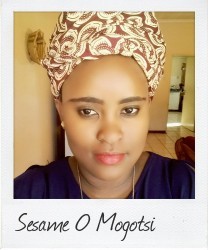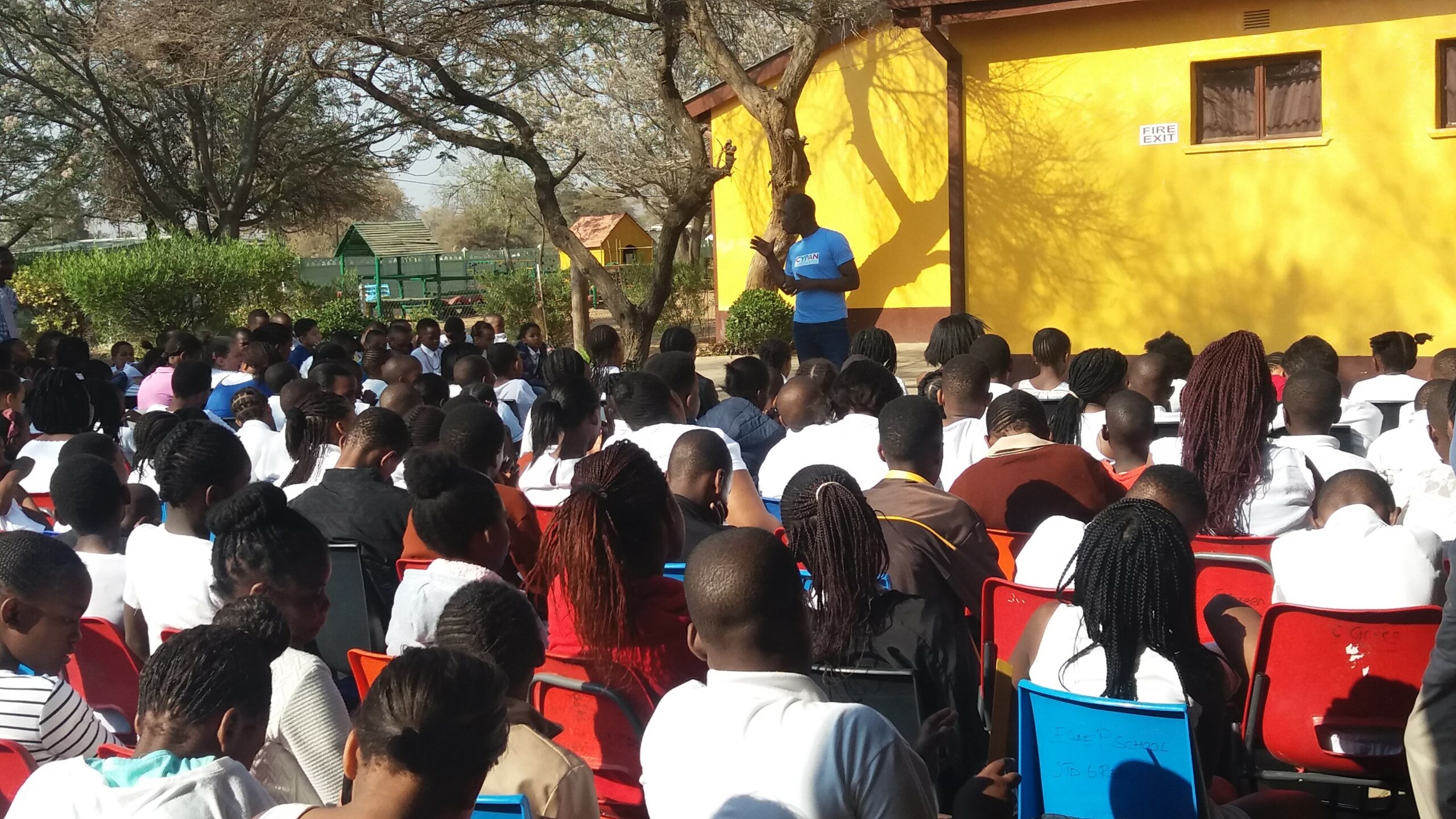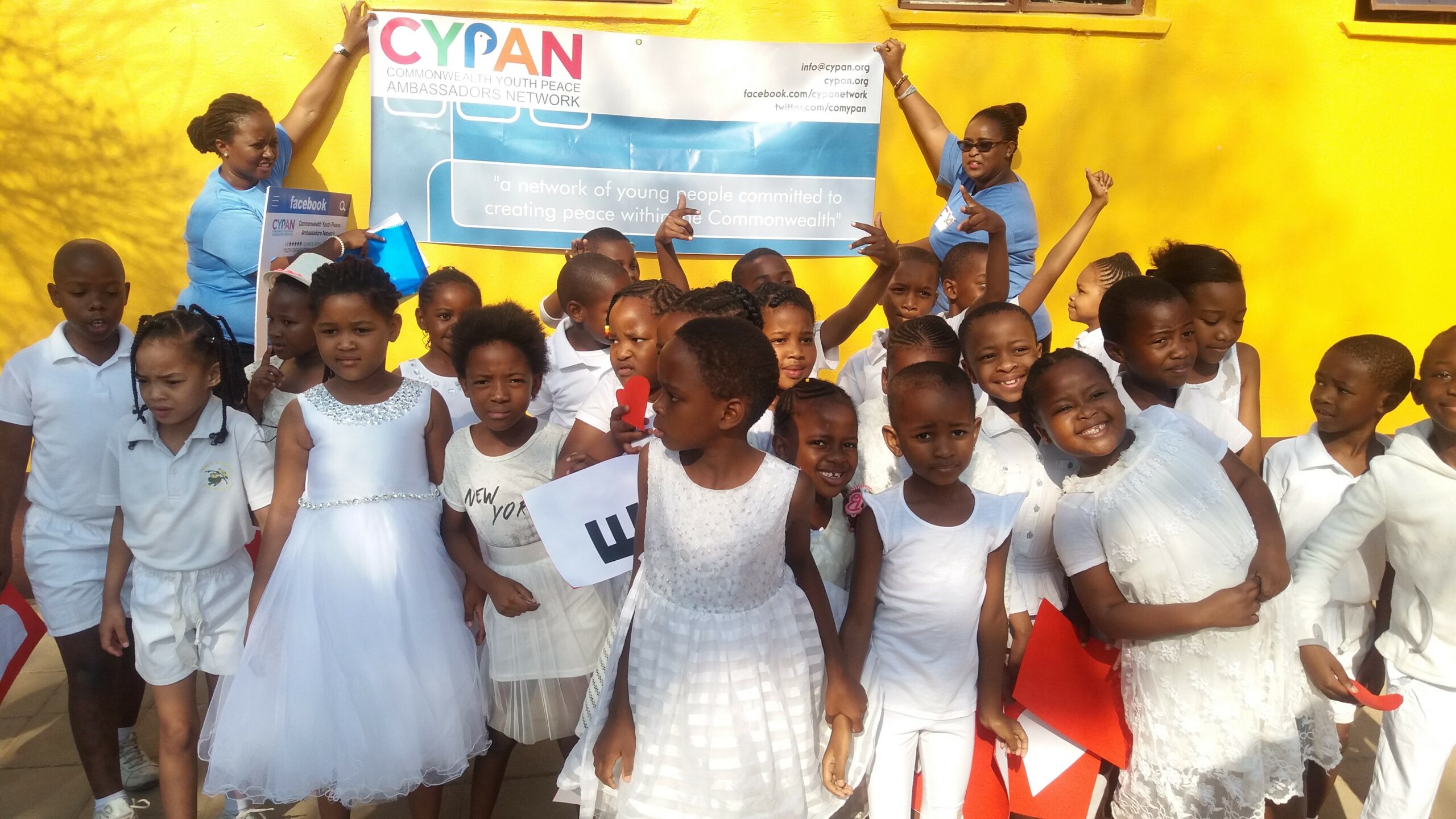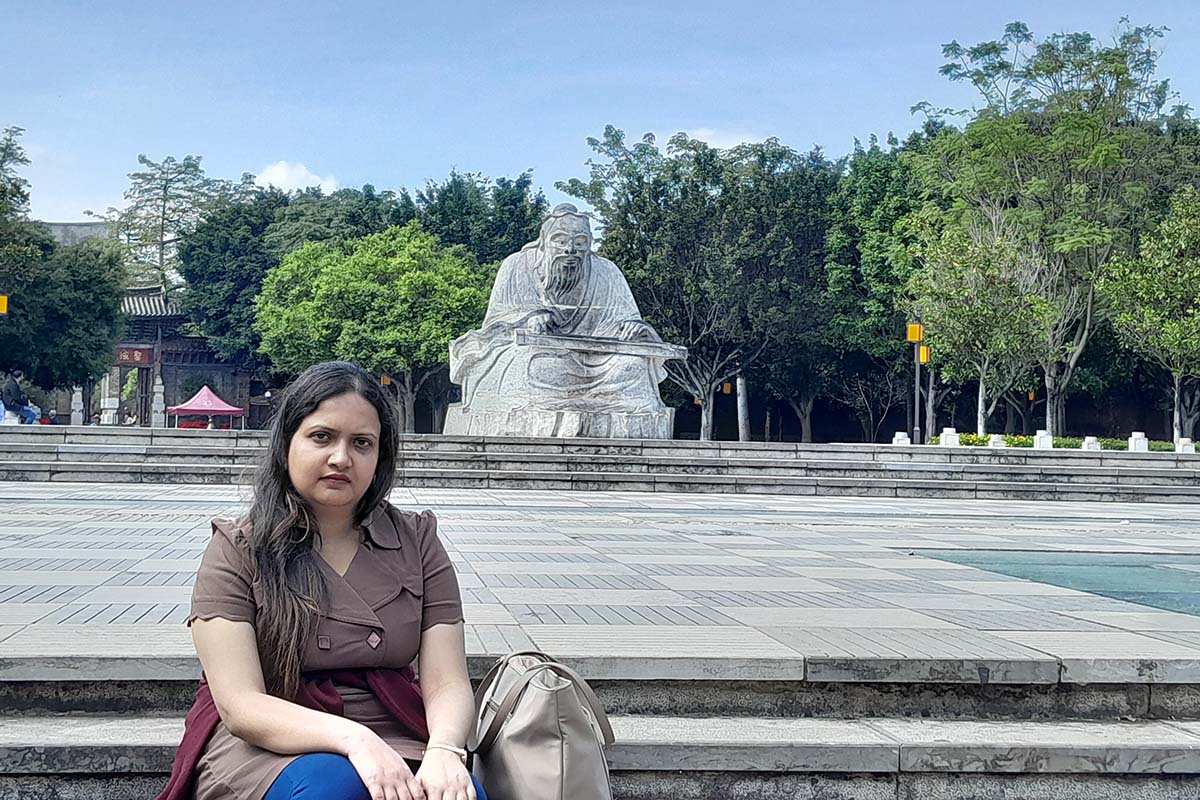“Youth are not the violence around them”
November 8 Youth are often viewed as instigators of conflict and violent extremism, but Sesame O. Mogotsi, 24, a Correspondent from Gaborone in Botswana, argues the narrative is steadily shifting.
Youth are often viewed as instigators of conflict and violent extremism, but Sesame O. Mogotsi, 24, a Correspondent from Gaborone in Botswana, argues the narrative is steadily shifting.
Young peace advocates have long contended that the capacities of youth and the possibilities of youth in preventing and resolving conflict are essential to building sustainable peace and security, and must be recognised.
Youth participation in the peace and security agenda is a demographic imperative.
Participation is a fundamental right and one of the guiding principles of the Universal Declaration of Human Rights (UNHR). Youth play a pivotal role in their development and that of their communities through active participation. The time of youth being passive beneficiaries of development is well over; youth are now stakeholders in developmental efforts and facilitators of change in their communities.
As a young peace advocate, I welcome the efforts that have been made to advance youth involvement in the peace and security agenda, in particular the United Nations Security Council Resolution 2250 (UNSCR 2250), which has ratified young people’s involvement in peace building processes and recognises youth as participatory partners and peace agents.
Restrictive settings to youth involvement such as exclusion from mainstream decision making processes, deliberate political and social marginalisation, restrain youth from partaking in matters of peace and security. Limitations of socio-economic and political opportunities are likely to contribute to driving youth to become involved in conflicts.
It is a demonstrated fact that failure of governments to meet the needs and expectations of their citizens, more especially youth, is a threat to peace (and stability). Issues of unemployment, poor education systems and health facilities, the undermining of law by elected leaders amongst others have sparked violent uprisings in several societies across the world. Hence it is crucial for youth to actively participate in matters of peace and security to ensure sustainable peace.
Youth are the main victims of conflict and violent extremism, bearing in mind their vulnerability to voluntary and involuntary military recruitment. Youth engulfed by conflict and post-conflict face circumstances that substantially alter their lives and prospects, youth from marginalised groups often being the first victims of violence. Besides being victims or perpetrators, young people can be advocates and activists for peace.
It is important to note that youth is not a homogenous group. It encompasses young people with disabilities, young refugees, young people from displaced groups or minorities and many others. Inclusion is one of the most important factors that help in building peace and social cohesion. With meaningful involvement of youth in issues of peace and security, sustainable peace can be achieved.
On the augmented necessity of youth participation in peace building processes, there also stems the need to have uniformity on the classification of youth. Numerous multinational definitions of youth range in ages. A more holistic definition of youth is essential to addressing the problem. A holistic definition will incorporate aspects such as cultural background, social group, economic status and location, and will attempt to include all young people in potentially unifying development practices that are focused on inter-generational peace building.
 I believe there is a need to teach people about actively accepting differences and embracing diversity at early ages. The number of tragedies that were triggered by discrimination on the basis of difference is mind-boggling. The Rwandan genocide, the Holocaust, slavery, the Armenian genocide, the Crusades and many others were all caused by lack of tolerance and understanding.
I believe there is a need to teach people about actively accepting differences and embracing diversity at early ages. The number of tragedies that were triggered by discrimination on the basis of difference is mind-boggling. The Rwandan genocide, the Holocaust, slavery, the Armenian genocide, the Crusades and many others were all caused by lack of tolerance and understanding.
People have to be taught about consciously embracing diversity from a young age. Education that explores and educates children on the different religious, cultural, ethnic and political groups will create a more understanding and less discriminatory society tomorrow. This will wage a war against discrimination and help youth reject the messengers of hate and violence based on difference.
Photos: courtesy of Sesame Mogotsi
…………………………………………………………………………………………………………………
About me: I am the Country Coordinator for the Commonwealth Youth Peace Ambassadors Network (CYPAN), responsible for overseeing operations and implementing network activities. I hold a Bachelor’s Degree in Political Science and Public Administration and am an Ashoka Changemakers Scholar 2016. I have keen interest in youth leadership, public policy, peace building and adolescent health. I am committed to solving problems bedeviling communities and look forward to a career in international development.
…………………………………………………………………………………………………………………
Opinions expressed in this article are those of the author and do not necessarily represent the views of the Commonwealth Youth Programme. Articles are published in a spirit of dialogue, respect and understanding. If you disagree, why not submit a response?
To learn more about becoming a Commonwealth Correspondent please visit: http://www.yourcommonwealth.org/submit-articles/
…………………………………………………………………………………………………………………




